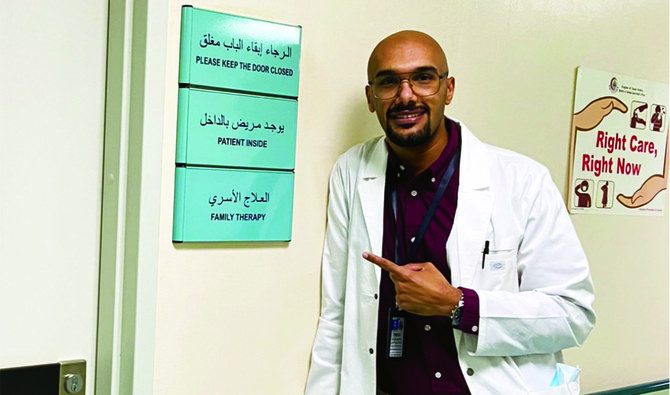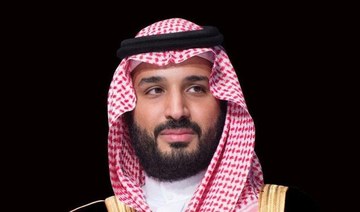JEDDAH: Pre-marital addiction tests have become a public demand in Saudi Arabia after two homicides committed by men against their young wives in August.
The Saudi Public Prosecution announced the arrest of the perpetrators, adding that the necessary legal actions were taken against them.
But these incidents have sparked discussions across different social media platforms in the Kingdom, with many people calling for compulsory pre-marital addiction tests and psychological evaluations of the mental health of both potential spouses.
Saudi authorities already require pre-marital screening for couples to detect common genetic blood disorders and infectious diseases.
However, calls to expand pre-marital testing to include psychological evaluations are nothing new, with many people arguing that their inclusion would be a successful way to tackle addiction and protect the family unit.
The most recent action to expand the pre-marital testing program was taken within the Kingdom’s Shoura Council in 2019, where some members proposed the inclusion of addiction tests, as well as tests for disorders and mental illnesses.
The proposal was denied because it did not receive enough supporting votes. The objection was supported by some specialists, who said that such tests have low accuracy and are prohibitively expensive.
Nonetheless, drug tests are already required in the case of non-Saudi men marrying Saudi women. Some specialists are now calling to include that requirement in overall pre-marital tests for both Saudis and non-Saudis, and both men and women.
Suzan Abdulsalam Khalil, a psychologist working with the protection unit against domestic violence in Jeddah, strongly supports pre-marital drug testing to detect addiction.
According to Khalil, this change will lead to the early detection of abusers and addicts. “It will protect young women from unknowingly getting married to an addict or mentally ill man, which would be a traumatizing experience for them and harms both parties, but most importantly the woman. Moreover, the situation worsens when there are children involved,” she told Arab News.
From her experience at the protection unit, Khalil has witnessed the devastating impact of a drug-addicted parent on children within the family.
“The behavior of drug users varies greatly before and after they take their dose, and unfortunately, this unstable situation badly affects the children and the family as a whole,” she said. “The psychological evaluation of children of an addict parent is always bad. We also find physical violence marks sometimes, traces of injuries, and bruises on their bodies, and sometimes we refer them to psychiatric hospitals.”
Khalil believes that expanding pre-marital testing is a necessary step in building a healthy society. It will significantly impact divorce and domestic violence rates and will also force addicts to receive treatment and professional help, she said.
She added that women’s reactions to being married to an addict can differ. Some choose divorce, while others try to be patient. But this can result in living an unstable life that includes physical or emotional abuse, which will eventually have an extremely negative impact on children, she said.
HIGHLIGHT
• Saudi authorities already require pre-marital screening for couples to detect common genetic blood disorders and infectious diseases.
• The program aims to give medical consultations on the potential transmitting of disorders to future children, and looks to provide couples with options that help them plan for a healthy family.
• However, calls to expand pre-marital testing to include psychological evaluations are nothing new, with many people arguing that their inclusion would be a successful way to tackle addiction and protect the family unit.
Various factors contribute to this complicated situation; however, the social stigma and shame attached to addiction and mental illness leads to negative social norms.
As a result, people with substance use disorder, and sometimes their families, tend to hide the reality behind their situation when it comes to marriage.
Furthermore, lack of awareness about the seriousness of mental health issues contributes to the continuation of unhealthy marriages and damaging social behaviors when dealing with mentally ill members of society.
Therefore, experts say that an action plan to spread awareness and change the culture is urgently needed.
Khalil said that parents, before agreeing to marry their daughter to a proposing man, usually try to investigate the man’s background, manners and moral standards within his work environment and friendship circles.
“But on the other hand, no one ever considers asking about the man’s mental health status or whether he has been diagnosed with a mental illness at any hospital,” she said.
The discussion surrounding an expansion of pre-marital screening highlights a more significant issue for marriage counselor and family therapist Abdulhakim Al-Yousef.
He believes that the real issue underlying the public debate is not whether or not to enforce addiction testing of couples before marriage, but the problematic idea of the possibility of entering a marital relationship with someone with an addiction to drugs or alcohol.
“It is rather more related to the many details that addicts to alcohol or drugs should be aware of, including those close to them,” Al-Yousef told Arab News. “It is important to understand that arriving at the phase of addiction is entering a state of mental illness that requires medical treatment and professional help, therefore entering a marital relationship at this phase is a very serious problem.”
He noted that addiction treatment requires patient admission to a rehab facility to receive appropriate treatment programs for their situation and recovery. It consists of several stages that need commitment, willingness, patience and family support.
He said: “Addiction treatment is a very sensitive matter that cannot happen without medical intervention, supervision and therapy. Marriage is never a solution to such a problem. When one of the spouses is an addict, the other partner cannot take responsibility for his or her treatment.”
Furthermore, the family therapist emphasized that quitting any form of substance abuse after completing the treatment program is not the end of the story, because recovering from an addiction is a lifelong journey. “Once a recovering addict returns to drug use at any later stage in his life, even with a small amount, he will return to point zero,” he warned.
In addition to medical treatment, patients also need cognitive behavioral therapy and family therapy sessions to establish a healthier relationship with themselves, their families and the world around them.

As a result, living with a recovering partner is not easy by itself. Therefore, starting a relationship with someone still actively consuming drugs or alcohol is a disastrous mistake, Al-Yousef warned. He places a strong emphasis on transparency between couples before marriage; they must be honest about details related to their backgrounds, personalities, health history and any other aspect that could impact their relationship in the future.
“Getting into a relationship without revealing these details will lead to other multifaceted problems,” he said, noting adding mental illnesses must not be treated as “hidden, dark secrets” between couples. “Surely, every person has the right to have a family and to enjoy a healthy relationship, but that is not possible for addicts unless they break free from addiction under specialist supervision and support,” he said.
For Al-Yousef, addiction detection tests might not directly impact divorce rates and domestic violence rates since several factors contribute to these phenomena.
Nonetheless, if applied, he counts on these tests to raise public awareness about drug and alcohol abuse, and to create momentum in the national mental health sector in the long run.































